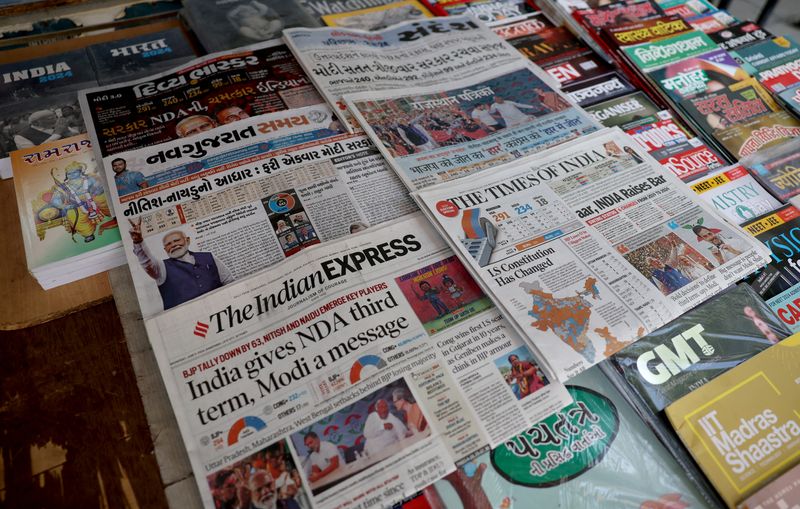By Dharamraj Dhutia
MUMBAI (Reuters) - India's government bonds will continue to attract foreign flows even as a narrower-than-expected victory margin for Prime Minister Narendra Modi-led alliance could prompt a shift in policy, fund managers said.
Foreign investors have piled on bonds this year and remained on the buying side on Tuesday, despite the unexpected election outcome hitting stocks, bonds and the rupee on concerns over populist spending and a stalling of reforms.
"The knee-jerk response of higher yields and some currency weakness could indeed be an attractive opportunity to add risk," Kenneth Akintewe, head of Asian sovereign debt at abrdn, said.
In spite of a risk of more populist policies, the fiscal "starting point is much stronger than expected" and the election results do not do much to derail the positive outlook for bonds, Akintewe said.
Expectations of a burst of populist spending soon after the elections may be unfounded, Adarsh Sinha, co-head, Asia FX & rates strategy at Bank of America, said.
"For the government, what would be the incentive to splurge after the election in the near term?"
India's fiscal deficit for the current financial year should settle around 5% of GDP against a budget target of 5.1%, Sinha said, pegging the benchmark 10-year bond yield to ease to 7% by the end of 2024.
Demand from overseas investors and long-term domestic buyers had pushed bond yields down until Monday. Indian bonds are also set to be added to JPMorgan's emerging market debt index later this month, which should help stabilise yields.

Bank of America's Sinha expects passive inflows of $21 billion into Indian bonds until March 2025.
"Despite potential near-term outflows, India's long-term growth trajectory remains compelling, which is likely to attract inflows into government bonds over the medium term," Manish Bhargava, a fund manager at Straits Investment Management, said.